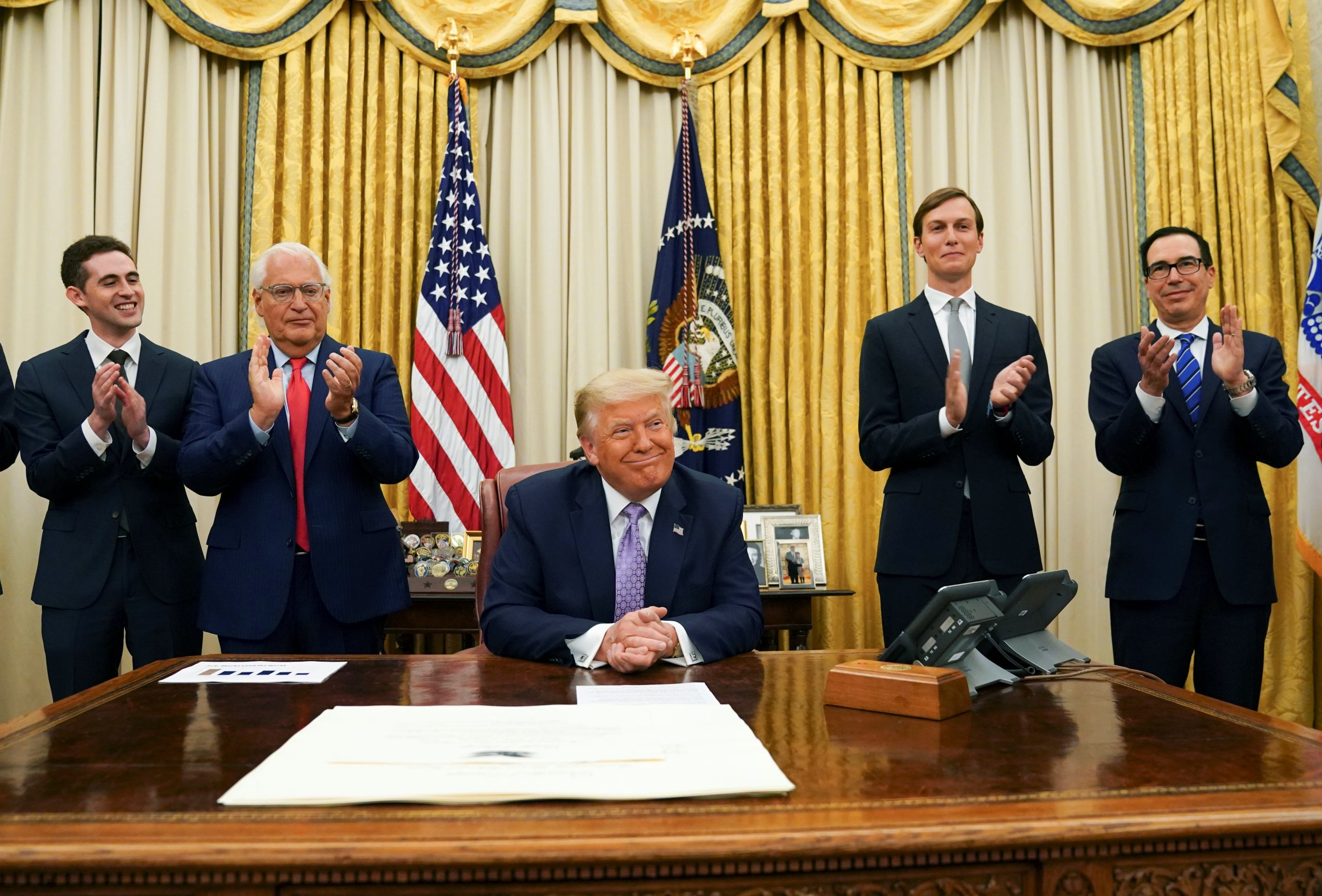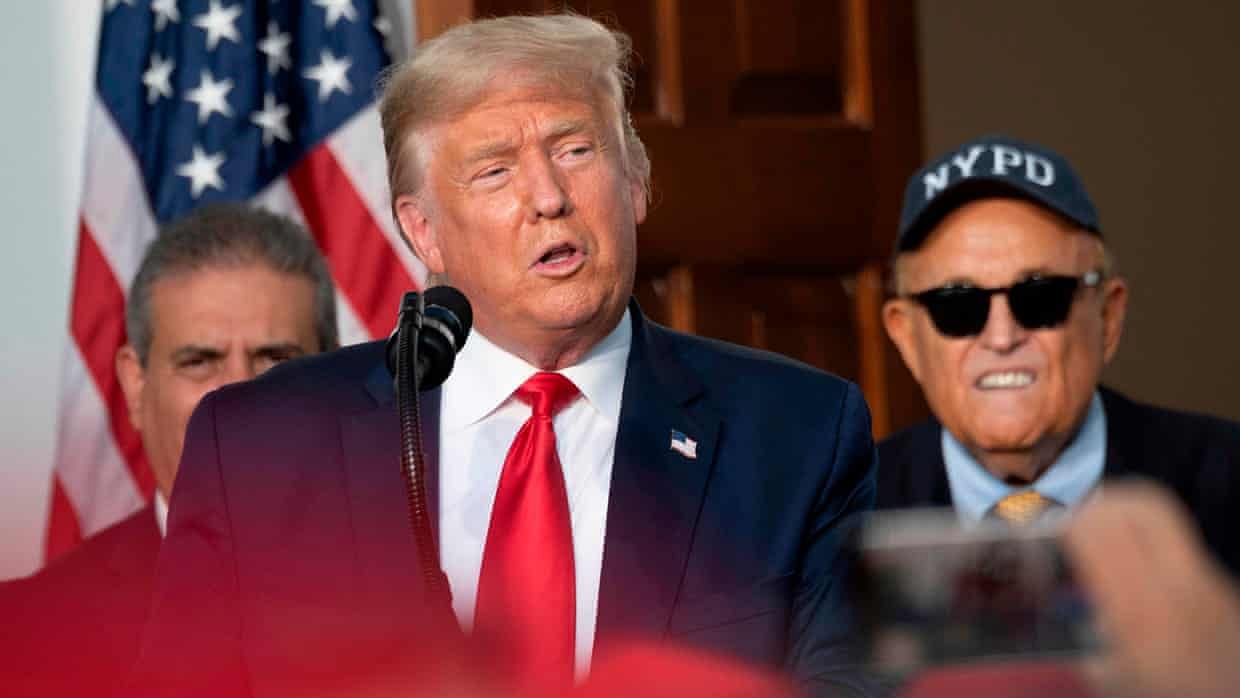Abraham Accords between UAE and Israel
The UAE became the third Arab country to normalize relations with Israel after Egypt (1979) and Jordan (1994) and the first Persian gulf country to do so.
On August 13, 2020, The United Arab Emirates and the state of Israel agreed to come together for the Israel-UAE Peace Agreement or the Abraham Accords. The deal is said to be arranged and negotiated by the Trump Administration. The deal was signed on 15th September, 2020 in a ceremony hosted at the White House, attended by Israeli PM Benjamin Netanyahu and the foreign ministers of the UAE and Bahrain.
The UAE became the third Arab country to normalize relations with Israel after Egypt (1979) and Jordan (1994) and the first Persian gulf country to do so. Following the footsteps of the UAE, Bahrain astounded everyone by declaring a fourth agreement with Israel within a month’s time which is again said to be brokered by US President Donald Trump. Past relations between the UAE and Israel have been quite embittered and truculent, to the extent that fierce rhetoric were exchange by the leaders of both the countries, tagging each other “the enemy”.
That being said, the UAE isn’t the only country to have directed hostility towards Israel. The entire West Asia bloc, comprising mostly of Arab countries, have grudge-bearing against the only Jewish state in the neighbourhood, a primary reason of which can be traced back in history.
Israel was created after the United Nations passed a resolution in 1947. Soon after, the Arab- Israel War (1948-49) broke out when Egypt, Syria, Iraq and Jordan attacked the newly created state. Israel was able to clinch victory and extend its boundaries by annexation. The victory could largely be attributed to the large support it received from the international community and especially the British, who had agreed to support the Zionist cause of establishing a homeland for Jews, in the wake of the Balfour Declaration of 1917.
Egos clashed again in 1967 and 1973 during the six days war and Yom Kippur War, respectively. Israel was able to repulse both the attacks. However, the wars paved the way for negotiations between Egypt and Israel which was actualized into a peace agreement in 1979. Twenty six years later, Jordan became the second Arab country to normalise relations in 1994.
Nevertheless, the deep seated resentment and fear from the technologically superior Israel and a soft corner for the conflict ridden Palestine still breeds in the Arab countries which acts as an impediment in the embracement of Israel by the entire West Asia. The treaty, seen as a precursor to absolute peace in West Asia, has been well received by the US, Egypt, Oman and Europe. However, some gulf residents lambasted the treaty. Kuwait and Turkey condemned the treaty, the Iranian foreign ministry called it a “shameful” act of strategic stupidity and Palestinians tagged it as betrayal and being “stabbed in the back” by the UAE. Palestinian share a century old antagonistic relation with Israel due to land dispute. Palestine has often accused Israel of annexation of the West Bank and Gaza Strip and establishment of unlawful settlement on their land to expand Israeli control.
This makes it important to ponder over what the future of the Abraham Accords looks like? According to US President Donald Trump and Israeli Prime Minister Benjamin Netanyahu, “Israel and the United Arab Emirates will fully normalize their diplomatic relations. They will exchange embassies and ambassadors and begin cooperation across the board and on a broad range of areas including tourism, education, healthcare, trade and security.”
This, nevertheless, didn’t deter both the parties on clearing their respective stance on the Israel-Palestine conflict. The UAE has stated that it will continue to align by the Palestinian population whereas Netanyahu clarified that its claim on parts of West Bank is still on the cards and would remain unaffected by the treaty.
Direct telephone services have been established and both countries are closely working together on the research for COVID-19 vaccine. The first commercial flight from Israel to the UAE commenced on August 31, 2020.
Conjectures about other Arab countries initiating similar peace agreements with Israel are making rounds in the upper echelons of the diplomatic circle. Such prospective parties seeking normalization with Israel include Morocco, Sudan and Oman. This has revived a ray of hope for a conflict ridden West Asia but equitable peace requires everyone to be at par, hence it becomes imperative to keep Palestine’s view in the forefront as well, a party which has been brazenly ignored in this deal.




Comments